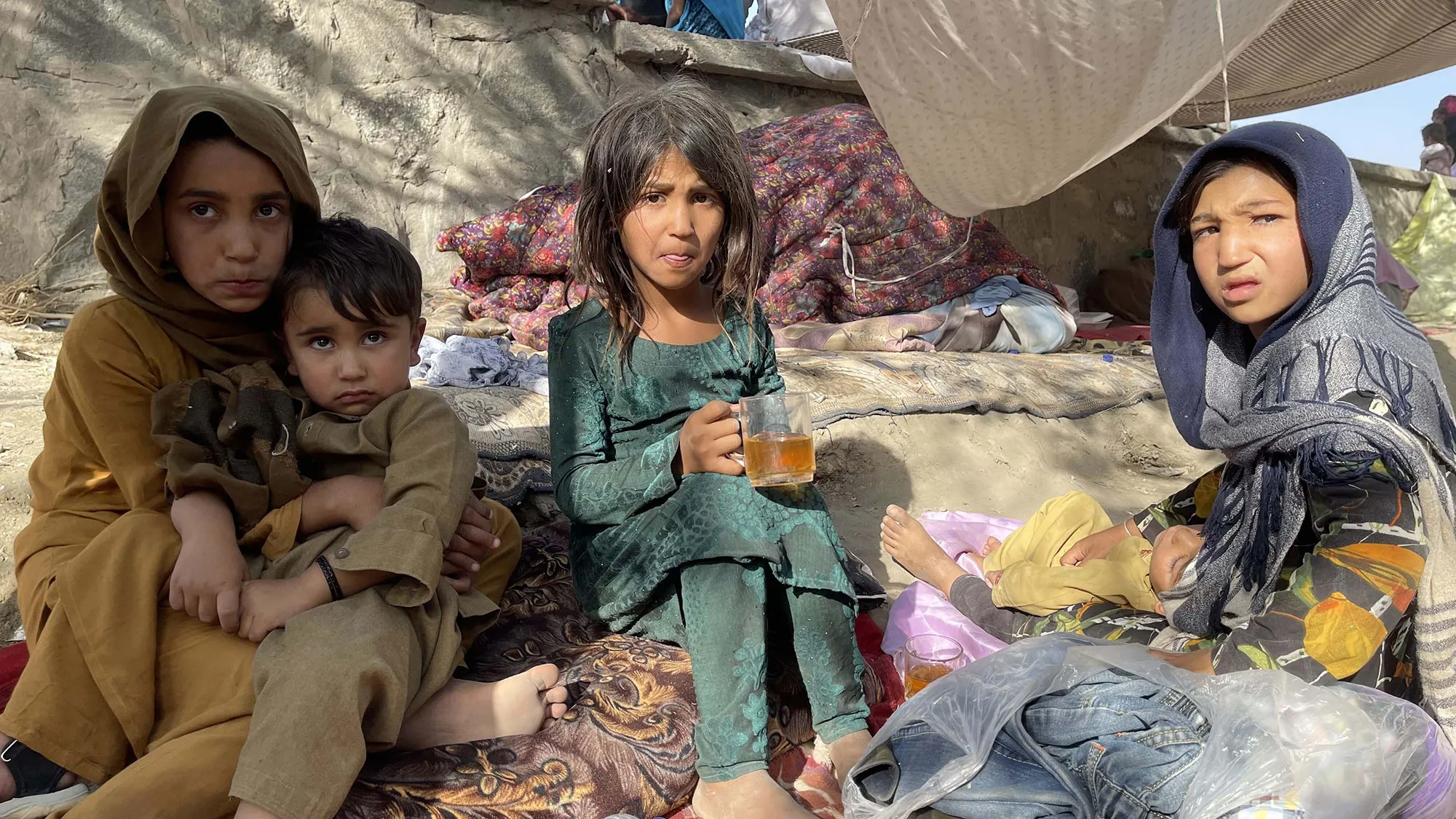The people of Afghanistan continue enduring one of the world’s most complex humanitarian crises, despite the media attention around the evacuation. Some 12.2 million people are facing acute hunger, 3.5 million people are displaced within the country due to drought and insecurity and the pandemic persists.
CARE Afghanistan’s Deputy Country Director, Marianne O’Grady, shared, “CARE remains focused and clear on our commitment to support the most vulnerable people in Afghanistan, including women and girls. Since May this year, almost 400,000 additional people have been displaced within the country, mostly due to insecurity. For countless displaced people living in the open, survival is a day-to-day prospect. By the time the hot Afghanistan sun has peaked over the horizon each morning, families have already contemplated tough questions – ‘How will we access food today? Will there be water to drink? How will we protect our most vulnerable family members? Where will we sleep tonight? What does tomorrow hold?’
“Financial assistance is a highly effective and efficient form of humanitarian aid, allowing families to decide for themselves what they need the most, while also supporting the local economy. Once banks and other institutions re-open, and CARE’s operations restart, we plan to help families buy essential goods and services, while also delivering hygiene kits. It is critical that safe, rapid, and unimpeded access for humanitarian workers – both male and female – is afforded, and the smooth passage of relief items is facilitated, so we can get aid to the people who need it the most, quickly.”
With more than 18 million people in need of assistance, Afghanistan remains one of the largest humanitarian crises in the world – even before these recent events. The current combination of acute hunger, income loss due to the pandemic, displacement, lack of access to healthcare during a pandemic, and insecurity is likely to trigger negative coping behaviors and increase protection risks. CARE knows from experience that displaced women and girls face greater risks, leaving them with even less decision-making authority over self and family, and most women have limited or no access to basic services, such as protection or health care.
Marianne said, “The Afghan people are resilient and hard-working, but they have been dealt blow after blow and need our support now more than ever. CARE urges the international community to meet its existing funding commitments and step-up funding to help provide much-need food, water, housing, livelihood support, clothing and items to help people face the harsh winter when it arrives. Let us stand in solidarity with the Afghan people. The spirit of a nation depends on it.”
For More Information:
Rachel Kent
Senior Press Officer
Rachel.Kent@care.org

